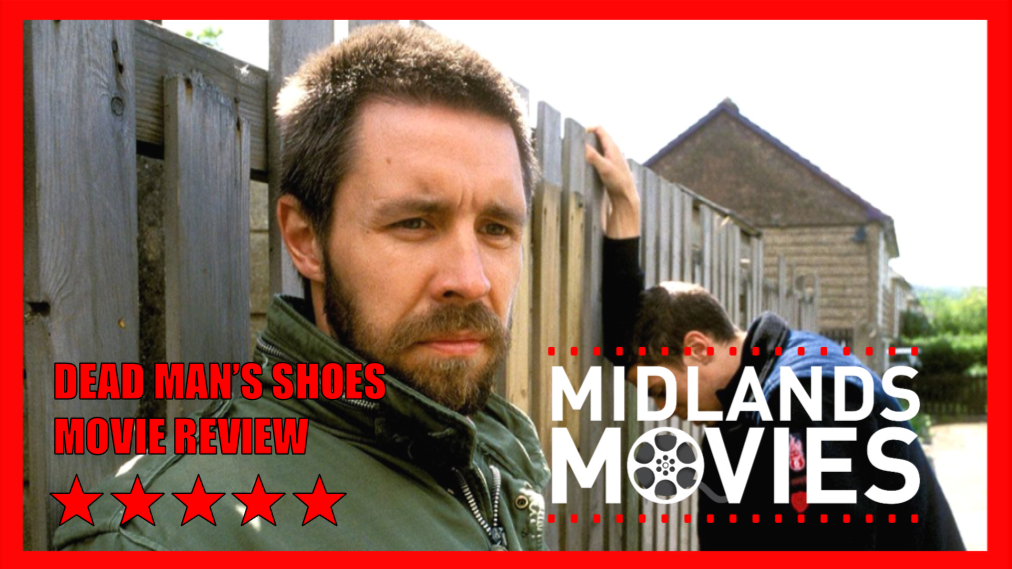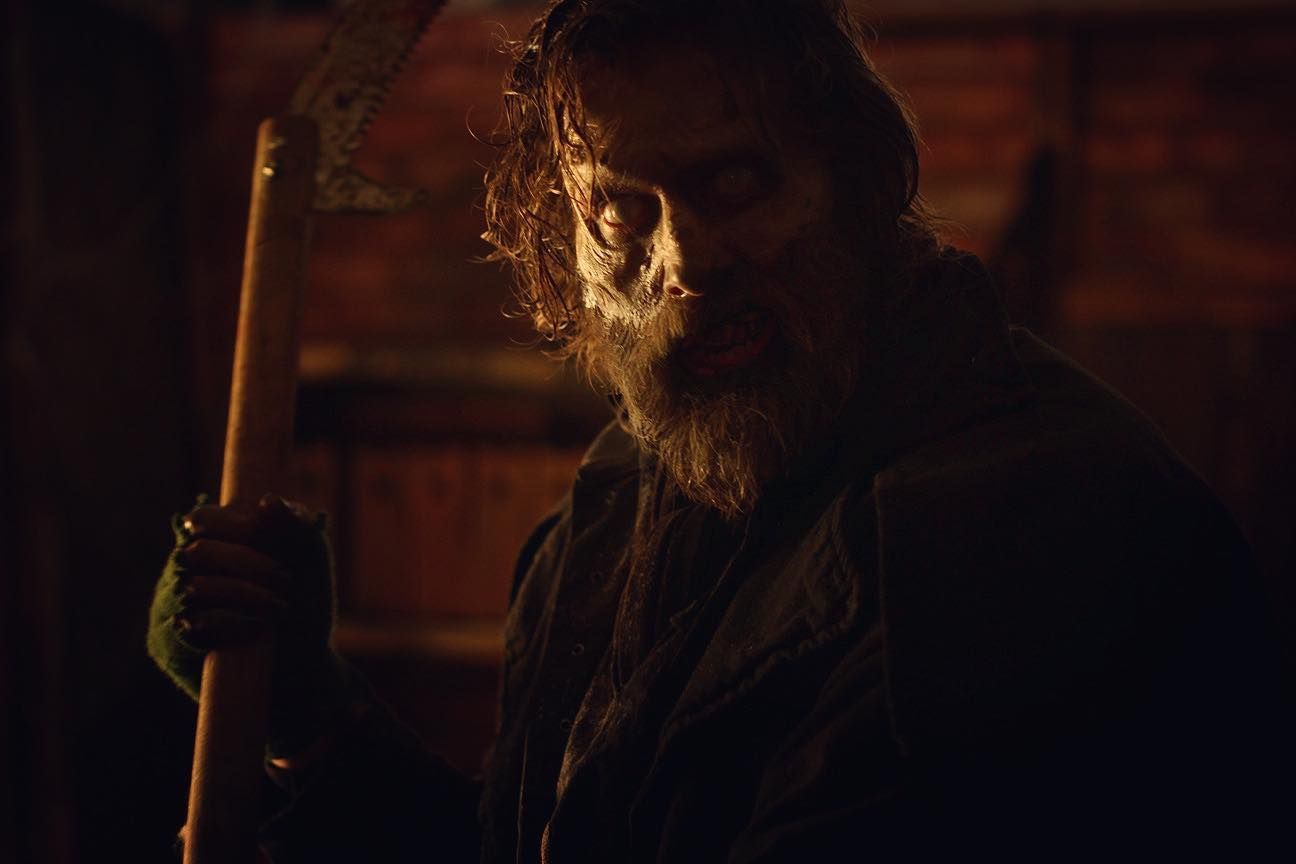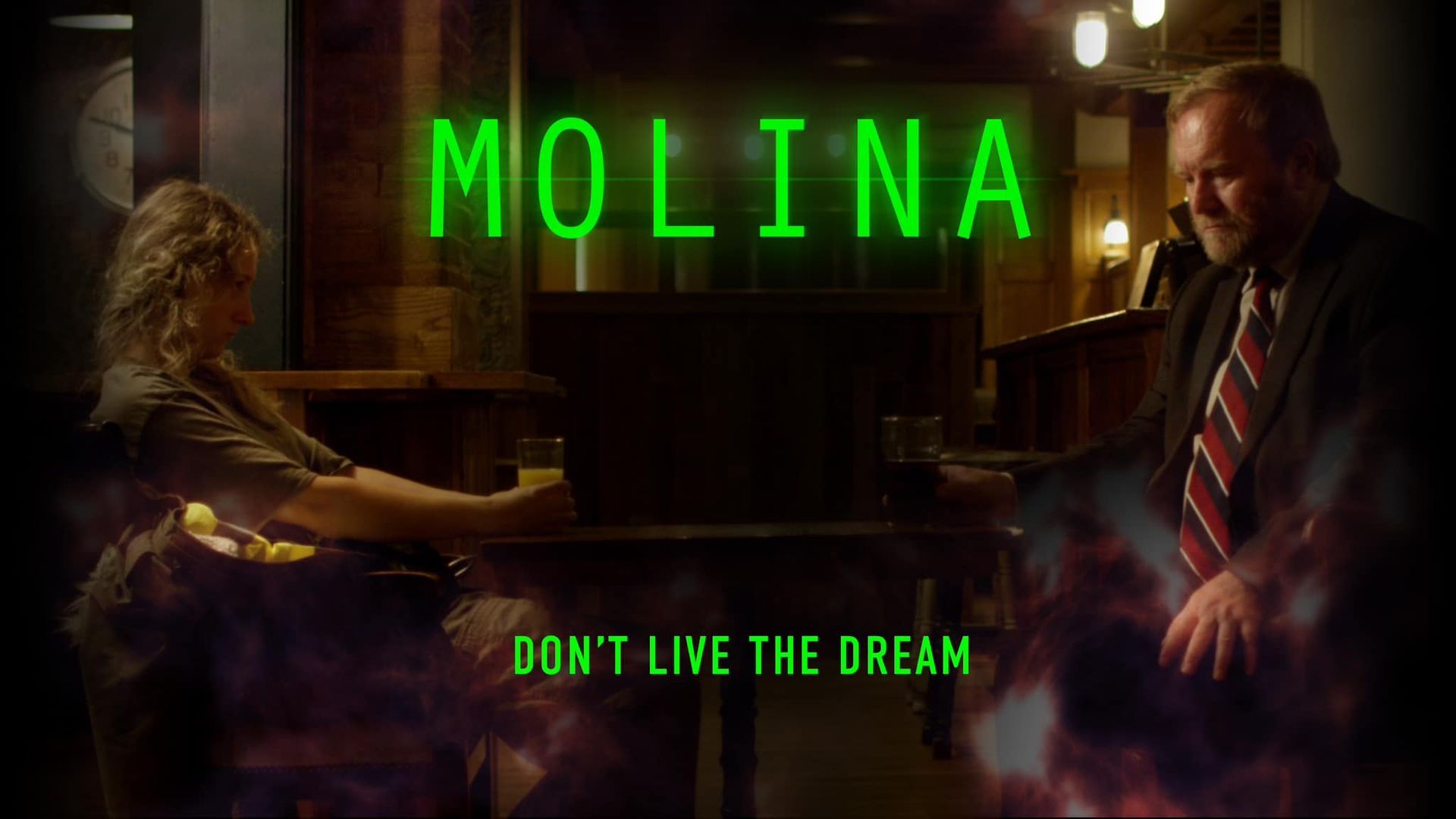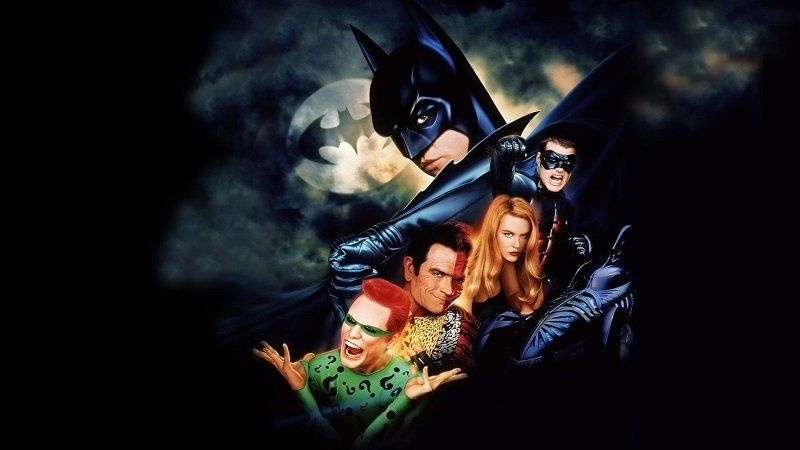Review of Dead Man's Shoes

Dead Man's Shoes (2004) Dir. Shane Meadows
To call Dead Man’s Shoes a revenge thriller does it a disservice. First released in 2004, Shane Meadows’ film has been unavailable for nearly 15 years (unless you were lucky enough to own a physical copy of it) and it remains as biting and uncomfortable as it did nearly 20 years ago.
Paddy Considine, who also co-wrote the film alongside Meadows and Paul Fraser, stars as Richard, an army veteran who returns to his Derbyshire hometown. A series of increasingly disturbing, black and white flashbacks reveal that his younger brother Anthony (Toby Kebbell) has a developmental disability and, during Richard’s absence, has been groomed and abused by a group of drug dealers.
The group is headed up by Sonny (Gary Stretch) who is shown to have orchestrated much of the abuse, though to say he has an iron grip on his cronies would be a little too generous. In fact, Meadows is quick to show how weak-minded the group are. Anthony’s disabilities give them power over him, but their reasoning for looking up to Sonny is based more on threats and the fact that he is the loudest, rather than him having true control. Sonny is a bully, and they fall in line to avoid becoming a target.
This becomes abundantly clear when Richard starts to target the group, first with minor pranks (clown makeup on Sonny, spray painting the jacket of another member, graffitiing the walls of their homes) and then escalating the encounters to violence. The gang are shown to be completely out of their depth (despite Sonny’s hardman status). His first encounter with Richard shows how diametrically different these two are. Sonny expects Richard to be afraid of him and tries to intimidate, but Richard remains calm and explains that he could have already killed the group if he’d wanted to.
Instead of focusing on the violence, Meadows plays with the genre. There are moments early on that are genuinely funny – Herbie (Stuart Wolfenden), Tuff (Paul Sadot) and Soz (Neil Bell) have some chuckle-worthy, naturalistic dialogue, as they get high in their apartment. By showing the weaknesses of the gang, Meadows encourages us to laugh at them, even if the flashbacks show that we should never underestimate them.
There are also some heartwarming moments between Richard and Anthony, as they camp outside of the town. Considine is such a wonderful performer, encapsulating the love for his brother, and his regret over leaving in just a few words or a facial cue in response to something Anthony has said. One moment that sticks in the mind is when Anthony says he didn’t need to hold Richard’s hand when he was younger. Richard is hurt by this remark but agrees, even though he and the audience know that Anthony isn’t as independent as he would like to believe.
Kebbell’s performance, in hindsight, is more difficult to categorise. Given the completely justified movement to have disabled actors represent their disabilities on-screen, Kebbell – an actor with no disabilities – playing Anthony is a difficult one to judge. Taken on face value, however, in the context of when the film was made, he does an incredible job. He never overplays the disability or allows it to become the only defining characteristic of Anthony.
When the violence starts, though, Meadows doesn’t flinch. This isn’t some John Wick style revenge, with hundreds of nameless thugs and inconsequential woundings. Every death here is designed to be as shocking as it would be in real-life, with Richard using his army training to enact an almost biblical level of destruction on each member of the gang. Perhaps more disturbing is his willingness to torture them psychologically before each death, making them understand what they put his brother through.
But there’s a sting in the tale. The revenge that Richard enacts upon the gang brings him no satisfaction. In a heartbreaking scene, Richard admits that his brother embarrassed him, confirming much of what the gang would tell Anthony to further their control over him. The brutal violence is supposed to be a penance for Richard but brings him nothing but regret.
The main strength of Meadows’ film isn’t the characterisation or the realistic portrayal of bullying. It’s highlighting that revenge does nothing. It’s a theme that he would revisit across the This Is England series, showing the devastating consequences of misguided actions.
Dead Man’s Shoes remains one of his most powerful works, taking the rather two-dimensional revenge thriller and putting a very human and discomforting face on it.
★★★★★
5/ 5
Matthew Tilt
Twitter @Matthew_Tilt
Dead Man's Shoes is in cinemas 15 September





